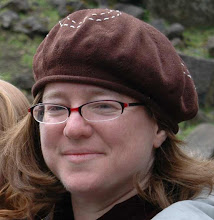 The Jewish Atlantic World Database is now open and free to use! In the collection, you will find over 5,000 images related to Jewish life in early America. The database includes both photos of material
culture (gravestones, ritual baths, synagogues, houses, furniture, etc.) and
archival documents (probate records and land evidence) from many of the
key ports where Jews settled in North America and the Caribbean, as well as
several crucial ports from which they immigrated (Amsterdam, London,
Hamburg). Also included in the
database are samples of non-Jewish (and later Jewish) artifacts to allow
students to better assess what made Jewish life distinctive. Keywords allow
visitors to connect artifact to other items related to the same individual,
family, ethnic group, location, port town, or theme. Right now you can browse or search, or look for records by the individual's name. Soon we hope to have a complete list of family names to browse as well. You will also find resources to help you analyze the objects in the database or to use in the classroom. Looking for something or someone and can't find it/them? Let me know, as we are still adding items to the database each week! Here are some important colonial Jewish families you will find in the database: Lopez, Henriquez, Senior, Curiel, Gomez, Hoheb, Hart, Rivera, Maduro, Seixas, and many many others.
The Jewish Atlantic World Database is now open and free to use! In the collection, you will find over 5,000 images related to Jewish life in early America. The database includes both photos of material
culture (gravestones, ritual baths, synagogues, houses, furniture, etc.) and
archival documents (probate records and land evidence) from many of the
key ports where Jews settled in North America and the Caribbean, as well as
several crucial ports from which they immigrated (Amsterdam, London,
Hamburg). Also included in the
database are samples of non-Jewish (and later Jewish) artifacts to allow
students to better assess what made Jewish life distinctive. Keywords allow
visitors to connect artifact to other items related to the same individual,
family, ethnic group, location, port town, or theme. Right now you can browse or search, or look for records by the individual's name. Soon we hope to have a complete list of family names to browse as well. You will also find resources to help you analyze the objects in the database or to use in the classroom. Looking for something or someone and can't find it/them? Let me know, as we are still adding items to the database each week! Here are some important colonial Jewish families you will find in the database: Lopez, Henriquez, Senior, Curiel, Gomez, Hoheb, Hart, Rivera, Maduro, Seixas, and many many others.
 This collection began when I was doing research for Messianism, Secrecy, and Mysticism: A New Interpretation of Early American Jewish Life.
In this book, I am interested in the ways in which colonial American
Judaism was as much an embodied religion as it was a textual or
faith-based practice. That is, I argue that we should think of colonial
American Jews as a “people of the body” as well as a “people of the
book,” and I look to the ways that everyday objects helped define and
create Jewish identity. By sharing the images used to create this book, I
hope to enable students, scholars, and family historians to trace the
paths that early American Jews (and their objects) took, as well as to
gain a richer sense of their everyday lives.
This collection began when I was doing research for Messianism, Secrecy, and Mysticism: A New Interpretation of Early American Jewish Life.
In this book, I am interested in the ways in which colonial American
Judaism was as much an embodied religion as it was a textual or
faith-based practice. That is, I argue that we should think of colonial
American Jews as a “people of the body” as well as a “people of the
book,” and I look to the ways that everyday objects helped define and
create Jewish identity. By sharing the images used to create this book, I
hope to enable students, scholars, and family historians to trace the
paths that early American Jews (and their objects) took, as well as to
gain a richer sense of their everyday lives.
If
you would like to learn more about the religious life of early American
Jews and the objects they used, please feel free to order a copy of Messianism, Secrecy, and Mysticism: A New Interpretation of Early American Jewish Life from ISBS or Amazon.com.
Purchase of the book is optional, however; this website is freely
available to the public as an educational, not-for-profit tool for
teaching and learning.


 This collection began when I was doing research for
This collection began when I was doing research for 


